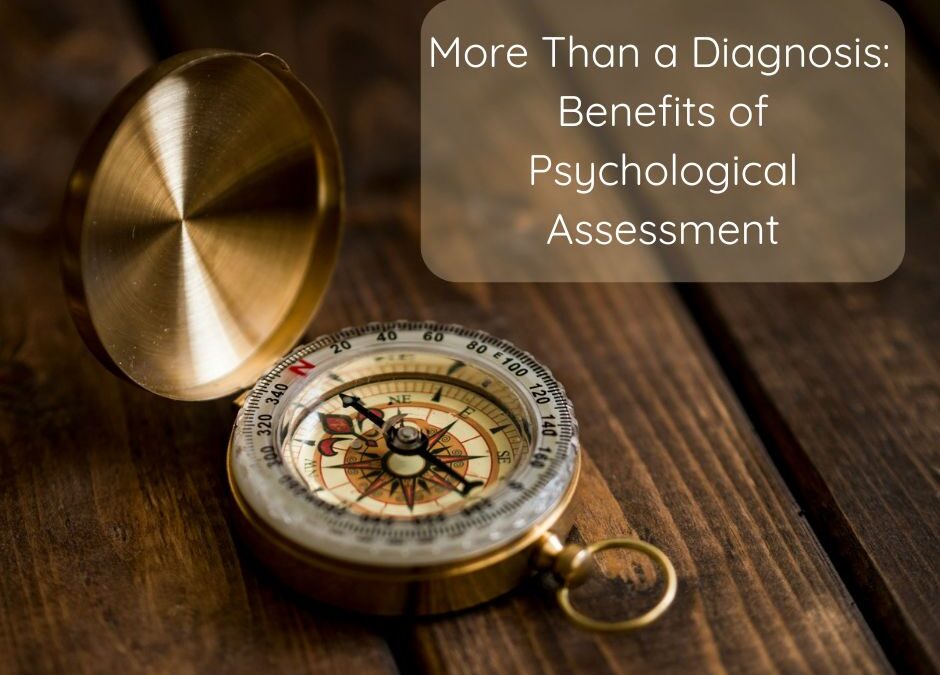What is Collaborative Psychological Assessment?

Benefits of Psychological Assessment
Diagnostic Clarity
There is a lot of talk on social media these days about different diagnoses. Borderline Personality Disorder, ADHD, and Autism Spectrum Disorder are examples. Many people recognize some common features of these disorders in themselves. However, there are a lot of things that can look like these conditions on the surface but have very different origins. For example, complex trauma, bipolar, and anxiety can all share features of ADHD – and parsing out the subtleties and nuances of these symptoms is more complicated than TikTok would lead you to believe!
Psychological assessment provides clinicians comprehensive insights into an individual’s cognitive, emotional, and behavioral functioning. These insights lead to diagnostic clarity. Understanding a diagnosis can foster self-acceptance and empowerment. It allows individuals to make sense of their experiences, recognize their strengths and challenges, and develop coping strategies tailored to their unique needs. It can also shift the focus from self-blame to self-compassion, fostering a sense of agency and control over the individual mental health journey.
Early Intervention = Better Outcomes
For children, identifying autism, ADHD, learning disabilities, and mood disorders early dramatically improves outcomes. People who are diagnosed later in life are more prone to depression, anxiety, and feelings of low self-worth. Early identification leads to early Intervention, crucial for minimizing impact and promoting resilience. A formal diagnosis provides a common language for communicating with healthcare providers, educators, and loved ones. It enables children to articulate their needs, helps them and their caregivers advocate for appropriate accommodations, and seeks understanding and support from those around them.
Reduction in Stigma and Misunderstanding
It can also reduce misunderstanding and stigma by replacing myths and stereotypes with accurate information and knowledge. A diagnosis of autism, ADHD, or complex trauma can feel frightening for adult clients or parents of children. However, clients of all ages, including children and teens, feel empowered by getting a formal diagnosis. For children, clarity around their struggles can help them find community and understand themselves more clearly as they move through the tumultuous childhood years. Similarly, for adults, it can be an experience of being seen, the puzzle pieces finally falling into place.
Individualized Treatment Recommendations: Avoiding Treatment Dead Ends
A vital component of a psychological assessment report is treatment recommendations. A collaborative assessment provides clients with individualized, thoughtful, actionable recommendations tailored to their unique goals and challenges. Tailored recommendations save individuals from going down a dead end in terms of medication or ineffective treatment interventions. For example, if someone is taking medications for ADHD when, in fact, they have bipolar mood disorder, that’s not only wasted resources but months or years of feeling much worse than they need to. Suppose a person struggling with an eating disorder who has underlying trauma has a treatment plan that consists solely of CBT or DBT. In that case, they are likely not going to find sustainable recovery.
The Benefits of a Collaborative Team Approach

Psychological Assessment: A Path Forward
Photo by Aaron Burden on Unsplash
Photo by Gabriel Crismariu on Unsplash
About the Author
No Results Found
The page you requested could not be found. Try refining your search, or use the navigation above to locate the post.
Interested in Learning More?


